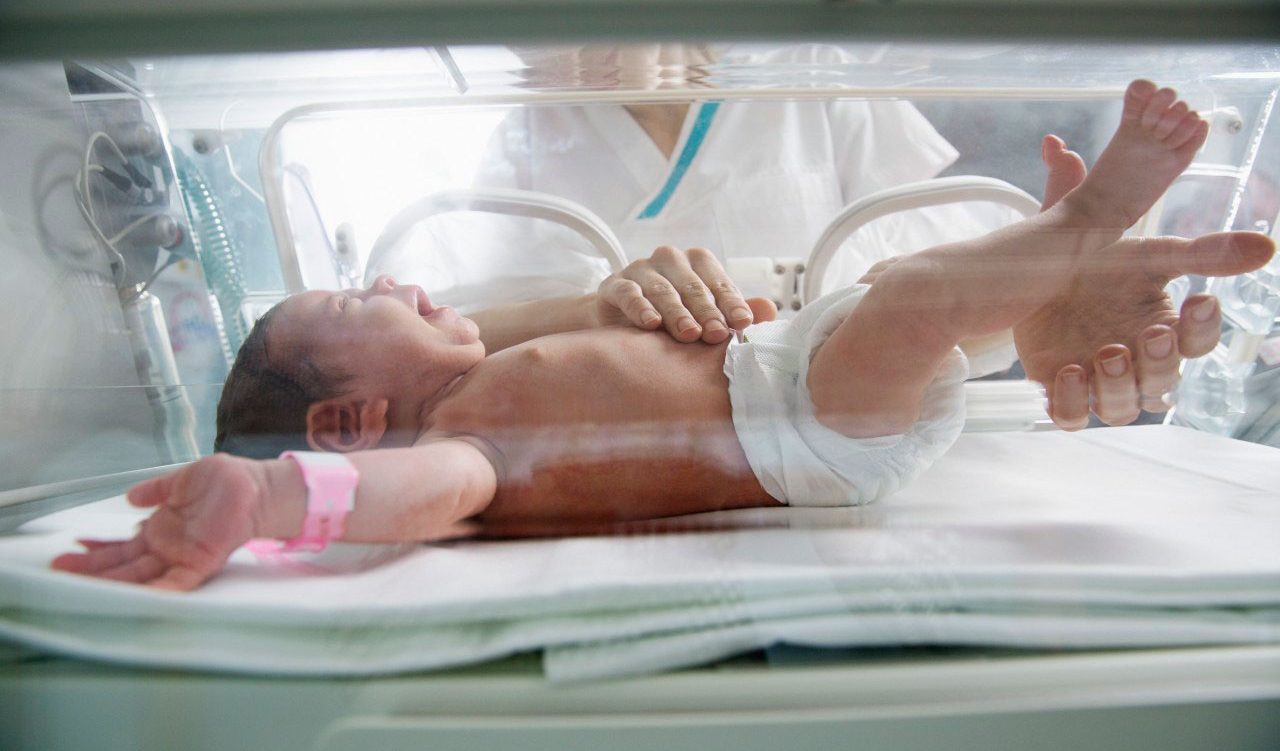Inside the Neonatal Intensive Care Unit

Some newborn babies will require care in a NICU, and giving birth to a sick or premature baby can be quite unexpected for any parent.
Newborn babies who need intensive medical attention are often admitted into a special area of the hospital called the neonatal intensive care unit (NICU). The NICU combines advanced technology and trained health care professionals to provide specialized care for the tiniest patients. NICUs may also have intermediate or continuing care areas for babies who are not as sick but do need specialized nursing care. Some hospitals do not have the personnel or a NICU and babies must be transferred to another hospital.
Here’s a guide to what you might find, and what happens, when your baby is in the NICU, with links to more detailed information.
Your Baby in the NICU: Understanding Infection
All babies are at risk for infection. This is because a baby’s immune system (the body’s defense against disease) needs time to develop. While it’s developing, your baby is more likely to get sick from germs than older children and adults are. A preemie’s immune system is less mature than a term baby’s, which puts preemies at higher risk of developing an infection. Certain health problems also raise your baby’s risk for infection.
Phototherapy for Newborn Jaundice
Jaundice is a yellowing of the skin and the whites of the eyes. In newborns, it’s usually caused by the breakdown of red blood cells. This releases a yellow substance called bilirubin, which is processed by the baby’s body. Bilirubin then leaves the body through the baby’s urine and stool. Bilirubin makes the skin and the whites of the eyes look jaundiced (yellow). This process is normal after birth. In fact, about half of all newborns have jaundice in their first week of life. It’s usually temporary and doesn’t require treatment. But in some cases, more severe or pronounced jaundice is a sign that the baby’s body can’t process bilirubin quickly enough. If bilirubin levels become too high, they can be dangerous to a baby's developing brain and nervous system. In these cases, phototherapy is needed. This treatment helps speed up the breakdown of bilirubin.
Prematurity
A baby born before 37 weeks of pregnancy is considered premature, that is, born before complete maturity. Slightly fewer than 12 percent of all babies are premature. Overall, the rate of premature births is rising, mainly due to the large numbers of multiple births in recent years. Twins and other multiples are about six times more likely to be premature than single birth babies. The rate of premature single births is also slightly increasing each year.
Common Terms and Abbreviations Used in the NICU
Your baby is in a special part of the hospital. It’s called the NICU. This stands for neonatal intensive care unit. Your baby is getting special medical care. Within the above link are words that you will hear used in the NICU.
People You May See in the NICU
Many of the people who help care for your baby in this unit are described below. They can help answer your questions and address your concerns.
The NICU is also sometimes called the special care baby unit (SCBU). An explanation of the people you may see in the NICU is in the above link.
Procedures and Equipment in NICU
NICUs are equipped with complex machines and monitoring devices designed for the unique needs of tiny babies. As a new parent, it can be overwhelming. Learning about what to expect in the NICU can help ease your anxieties.
Nutrition for Premature Infants in the NICU
For a time, health care staff will care for your baby in the neonatal intensive care unit or NICU. There are several ways to feed babies while they’re in the NICU. A health care provider may start to feed your baby through an IV (tube that goes into the vein). A tube may be used to send formula or breastmilk into the baby’s stomach (a gavage feeding). Your baby may be able to go directly to breast or bottle feeding. The best method depends on your baby’s health and gestational age. Your baby will likely be feeding from a breast or bottle before leaving the NICU to go home.
Interacting with Your Premature Baby in the NICU
NICU staff can take care of your baby’s medical needs. Your presence is just as important. Only you can give your baby a parent’s love and care. You may find the NICU scary and confusing at first. But despite the wires, tubes, and machines, you can still begin to form a lifelong bond with your baby. That feeling of warmth and connection is good for both of you.
Breastfeeding Your Premature Infant in the NICU
For a time, your baby will be cared for in the NICU (neonatal intensive care unit). This is a stressful experience for mothers, and they are often concerned that they will not be able to breastfeed. For babies in the NICU, a breastmilk is the best food for your baby. Think of your milk as an actual medicine that no one else can make. This medicine that you produce is specifically tailored to the needs of a preemie. Breastmilk contains immune factors that help your baby fight off infection. Breastmilk also protects your baby's bowels from damage. At first, you might not be able to actually nurse from the breast. As your baby is able, however, you will be able to practice breastfeeding. This experience can help you bond with your baby and be more involved in your baby's care.
Taking Your Premature Baby Home from the NICU
Most preemies are ready to go home when they are:
- Able to maintain a stable body temperature in an open crib
- On complete breast or bottle feeding
- Taking in enough calories to gain weight
Updated:
April 07, 2020